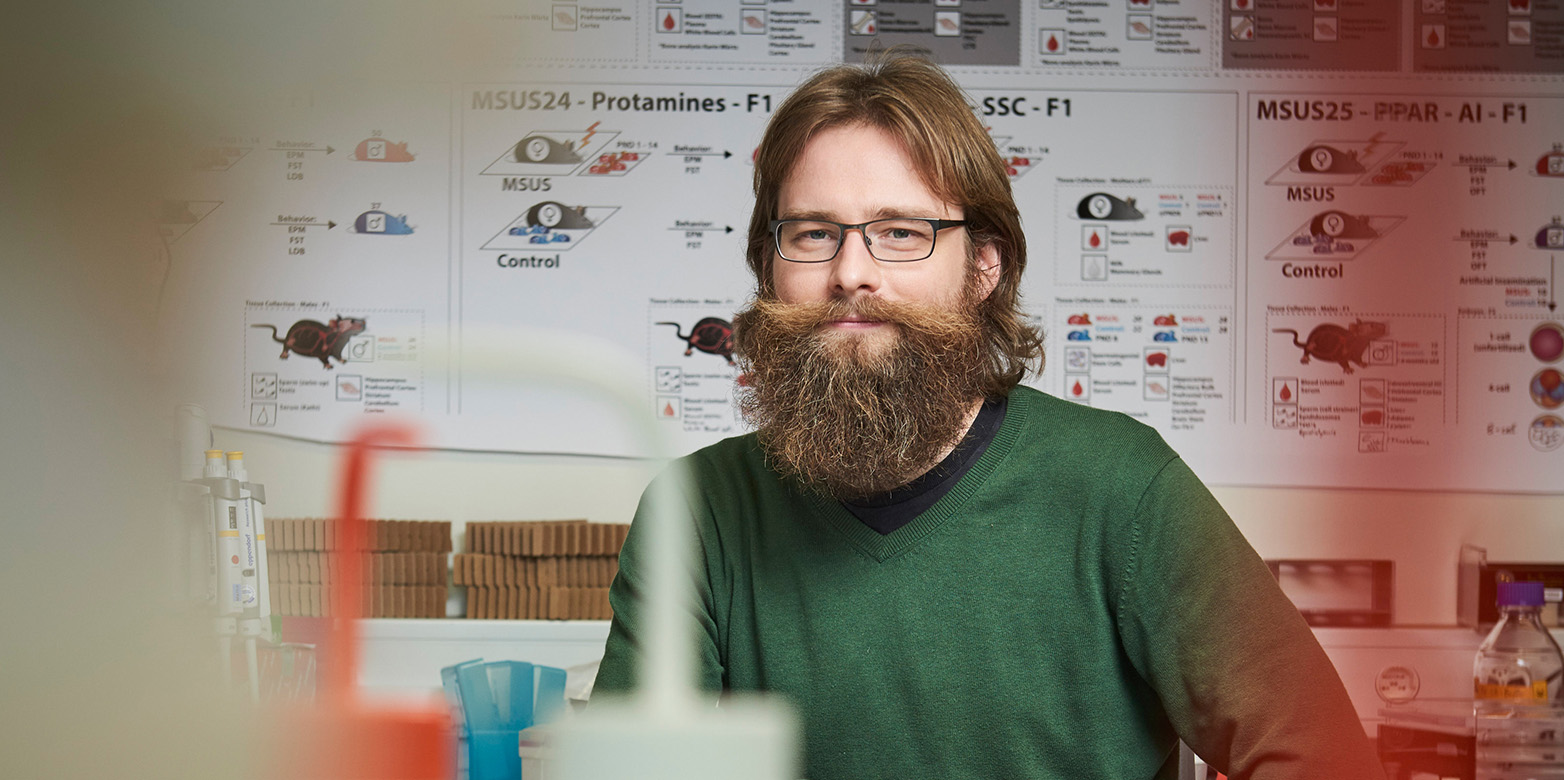Building bridges for scientific staff
For the past 50 years, AVETH has promoted the interests of doctoral students, post-docs and scientific staff. The association gives equal weight to representing its members in university policymaking and providing concrete support and counselling.

What began as a tentative idea has evolved over the past 50 years to become a mainstay of the university: the Academic Association of Scientific Staff at ETH Zurich (AVETH) includes representatives from all academic departments as well as the Singapore-ETH Centre. It represents the interests of doctoral students, post-docs and scientific staff in the University Assembly and on a number of university commissions. The organisation currently has 2,300 members. This is equivalent to one- third of the approximately 6,000 scientific staff, the majority of whom (some 4,000) are doctoral students. “Our membership figures are very high compared to other universities,” says Martin Roszkowski, AVETH President since 2017.
The association offers concrete assistance and represents the scientific staff’s interests in university policymaking. Roszkowski cites the example of a practice that some individual professors introduced a few years ago of establishing part-time positions for post-docs due to budget constraints. AVETH strongly opposed this practice and successfully fought off an alternative proposal to introduce a pay gradation scheme instead of part-time positions to cut costs.
AVETH’s broad-based representation and popularity at the university is based on tens of thousands of hours of voluntary work and specific services. The association holds information events to welcome new doctoral students, post-docs and academic staff. AVETH representatives from the academic departments get in touch with new arrivals personally, providing useful information on life at ETH. The AVETH website offers a survival guide for doctoral students, providing advice and targeted assistance for the doctoral studies process, which can be a challenging time. Some 30 years ago, the AVETH offshoot Telejob laid the foundations for the online job platform “ETH get hired”. And this year, to celebrate its 50th anniversary, AVETH organised a series of workshops and takeaway talks.
Focus on doctoral supervision
One of the services AVETH members use a lot is counselling. Scientific staff can turn to the organisation for confidential assistance regarding any concerns they may have about their employment or difficulties in their private life. AVETH members provide advice or enlist the help of experts for situations such as conflict de-escalation or the need to prepare for a difficult discussion. The most frequent reason doctoral students turn to the counselling service is to resolve conflicts with their supervisors, says Roszkowski.
In 2017, this prompted AVETH to launch a study into the quality of doctoral student supervision at ETH. The results made a major impact when they were published in April 2018. Sixty-two percent of the almost 1,600 respondents said they were generally satisfied with their supervision. Yet almost a quarter of the respondents said their supervisor had abused their position of authority.
“Until that point, the issue of supervision had been treated much like the issue of salaries,” says Roszkowski. “Nobody wanted to talk about it – dedication to research overruled everything else.” He cautions against putting all the blame on one side, however: “Much depends on the doctoral students themselves,” he argues. “They need to stand up for their rights and clearly articulate what they expect from doctoral supervision.” Against this backdrop, ETH launched a programme for new candidates in early 2019 that aims to strengthen professors’ supervisory skills while also helping doctoral students to know their rights and obligations.
Roszkowski notes that the AVETH board has since expressed its satisfaction with how the university has responded to the problems of doctoral supervision that came to light in 2017. A two-day symposium, which provided the first platform of its kind for experts and members of ETH to hold wide-ranging discussions on this issue in Switzerland, simultaneously marked the beginning of consultations on new rules and measures for supervising doctoral students – a process in which AVETH played a major role. “It’s a good start. Our task now is to check that the measures are enforced and encouraged throughout the university,” explains Roszkowski.
Reassessing the doctorate
Roszkowski also mentions another topic that AVETH will be focusing on in the future: “The prospects of obtaining a professorship are rapidly diminishing, and competition between doctoral students and post-docs will continue to increase.” He argues that many students will end up embarking on their doctorates with unrealistic hopes of obtaining their own professorship. Roszkowski therefore proposes that people should reassess how they approach their career in science: “Doing a doctoral thesis is a step toward a professorship, but it can also be relevant for other kinds of professional activity and social engagement.” Roszkowski is doing his doctorate on the molecular mechanisms of epigenetic inheritance at the Laboratory of Neuroepigenetics and will finish his thesis next year. “I know that I want to stay in research and lead a team,” he says. “There are exciting opportunities to do that not only at the university, but also in the private sector.”
This text has been published in the current issue of the Globe magazine.
